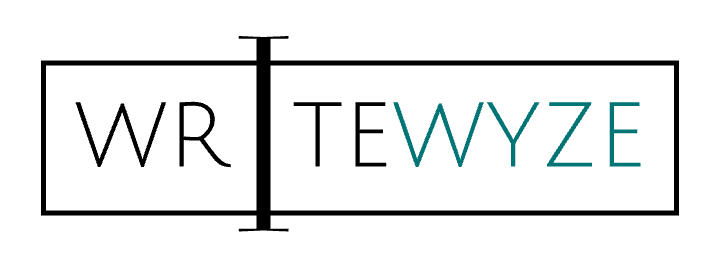Artificial Intelligence has become a tangible reality of our everyday lives, transforming industries. Content creation is no exception. But let’s cut through the hype: AI is not about to replace us writers.
This article explores the boundaries of AI’s abilities in content generation. We’ll discuss its strengths, like speed and idea generation, and its weaknesses, such as factual accuracy and SEO risks, and why a hybrid approach that leverages both AI and human expertise is not just preferable — it’s borderline critical.

Source: Unsplash
But before we dive into the nitty-gritty of it all, let’s first settle that AI and us writers each have their unique sets of skills and limitations. The key to effective content creation lies in recognizing these factors and using them to complement each other — improving our efficiency and training AI to be better.
The good side of AI
Let’s begin by exploring the areas where AI excels and how it can bring tangible contributions to the content creation process.
Speed and efficiency
Time is money, and AI can save us a lot of both. Need a quick draft or a list of trending topics? AI can churn that out at the speed of thought.
Idea generation
When creativity seems to stall, AI can serve as a catalyst. It can generate a diverse array of topics, headlines, and titles, providing the initial push that can lead to more comprehensive and engaging content.
SEO benefits
Keywords are essential to any content strategy, and AI excels in this domain. It can swiftly analyze a prompt to suggest keywords that enhance the content’s search engine visibility. However, it’s worth mentioning that keyword integration requires a nuanced approach, something that human expertise brings to the table. More on this later.
Overcoming writer’s block
We’ve all been there — staring at a blank screen, the cursor blinking mockingly. AI can break that deadlock. It can generate outlines and key points, laying the groundwork for the writer to build upon. It won’t write our Pulitzer, but it can certainly get us out of the starting blocks.
Where AI hits its limits
Now that we have an idea of where we can rely on AI let’s shed some light on its limitations to provide a well-rounded perspective.
Lack of factual accuracy
AI doesn’t do footnotes. It can generate content that sounds credible but may not stand up to scrutiny. If you’re looking for rigorously fact-checked articles, there’s no way you can get rid of human oversight.
Risk of offensive content
AI doesn’t understand social nuances or cultural sensitivities. It can inadvertently generate content that’s offensive or politically incorrect. While it’s an evolving process, it’s just not there yet. It’s like a bull in a china shop; you’ll need a human to steer it clear of disasters.
Inadequacy in long-form content
AI can’t run a marathon while it’s good for a sprint. It falls short when it comes to long-form articles that require depth, analysis, and a coherent narrative. It can give you a good paragraph or two, but it lacks the stamina to maintain quality over several thousand words. Plus, AI may start hallucinating and weaving false stories to match your requirements.
Absence of emotional intelligence
So far, AI has turned out great when crunching numbers and spitting out text, but it can’t feel emotions. The ability to connect with readers, evoke emotion, or persuade— uniquely human traits. If you want your content to do more than occupy space on a webpage, you need a human writer.
SEO risks and Google’s policies
Google is no fool. Its algorithms are getting smarter at detecting AI-generated content, and there’s a real risk of penalties down the line. No one wants their site to plummet in search rankings because they cut corners with AI-generated content.

Source: Unsplash
Concerns with plagiarism
Using AI-based automated writing tools can lead to legal ramifications given how, in some cases, the AI-generated content may cause copyright infringement. While obviously, AI gets trained on actual, existing data, which it uses to generate “new” content, sometimes, it gets too close to existing material for comfort. Plagiarism is a serious concern and is one more reason why human oversight is non-negotiable.
Why the hybrid model works
Having explored both the capabilities and limitations of AI, let’s discuss how we at Writewyze integrate these insights into a balanced, effective content strategy.
Combining speed and quality
We’re not in the business of throwing the baby out with the bathwater. AI has its uses, especially for quick drafts and idea generation. But we pair it with human expertise to refine these rough diamonds into polished gems. It’s not about choosing between AI and humans; it’s about leveraging both for optimal results.
We guarantee originality
We take originality seriously. Even the smallest piece of content we create is vetted diligently to ensure it is original and relevant. With this dual-model approach, you get the best of both worlds — speed from AI and quality from human expertise.
Adapting to SEO changes
SEO is a constantly evolving field. In fact, it may be evolving sooner than you think — every few weeks. While AI can provide initial keyword suggestions and some rudimentary SEO strategies, it cannot adapt to the ever-changing algorithms and best practices.
This is where human expertise becomes invaluable. Human writers can adapt to these changes and anticipate future shifts, ensuring that your content remains relevant and highly visible.
Final thoughts
AI augments humans but cannot replace our creativity and out-of-the-box thinking skills. Its strengths are speed, efficiency, and even some rudimentary creative abilities. But it also has significant limitations, from factual inaccuracies to potential SEO pitfalls. That’s why at Writewyze, we’ve adopted a balanced, dual-model approach — it’s not just a recommendation; it’s our practice. We leverage AI for what it’s good at and let our seasoned writers handle the heavy lifting.
By blending AI’s technological prowess with human expertise, we ensure content that is not only high-quality but also impactful. So when organizations entrust us with their content needs, they’re getting the best of both worlds without the risks associated with AI-generated blogs.
